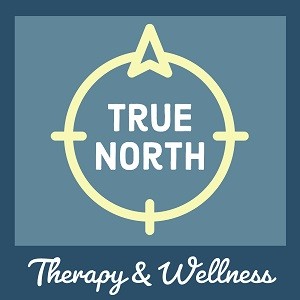In individual therapy (sometimes called psychotherapy or counseling), you and your therapist meet one-on-one for a series of ongoing sessions. During this process, your therapist will assist you in exploring your current challenges and relevant life experiences, identify your goals, and help you clarify what is important to you. From there, your therapist will provide the support and tools needed to work toward the life you most want to live.
Individual Therapy

Therapy is collaborative: you bring your expertise on you and your life, your therapist brings their professional expertise, and together you’ll find the way forward. Therapy is also active: it is not about rehashing your week or “venting” your concerns. While exploring recent events and stressors are often a part of the process, the real work is addressing how you respond to what life brings your way. Last, but not least, therapy requires work between sessions; the details will depend on the specifics of your treatment, but often includes practicing specific skills or completing agreed upon tasks.
Treatment Specialties
Trauma & PTSD
Self-Criticism
Stress Management
Sleep Problems
Anxiety
Lack of Self-Worth
Relationship Problems
ADHD
Depression
Binge & Emotional Eating
Grief / Loss
Life Transitions
Evidenced – Based Treatments Offered
ACT
Acceptance & Commitment Therapy

ACT (pronounced as the word “act”) is a mindfulness-based cognitive behavioral therapy with an emphasis on values-based living. ACT focuses on helping people develop a different way of relating to difficult internal experiences (thoughts, feelings, body sensations, etc.) while taking active steps toward living life in a way that is personally meaningful. ACT has been widely researched and shown to be effective in treating a vast range of mental health concerns including anxiety disorders, depression, OCD, and chronic pain.
EMDR
Eye Movement Desensitization & Reprocessing

EMDR heals the impact of trauma and other past distressing life experiences. Research best supports EMDR for those with a PTSD diagnosis; however, some research supports use with other concerns including depression and anxiety when current symptoms are believed to be the result of past adverse experiences. EMDR is unique in that parts of the treatment utilize bilateral stimulation – typically eye movements, tapping/ tactile stimulation, or auditory stimulation. This helps the brain reprocess the memories to an adaptive resolution.
DBT
Dialectical Behavior Therapy

Dialectical Behavior Therapy is a mindfulness-based cognitive behavioral therapy focused on skill development for emotion regulation and changing ineffective behavioral patterns. This approach integrates acceptance and change strategies and focuses on the development of skills in four core areas: mindfulness, distress tolerance, emotion regulation, and interpersonal effectiveness. Originally developed for treatment of borderline personality disorder, chronic suicidality and self-injurious behaviors, DBT has been shown to be effective for many mental health concerns, including stabilization and coping skills for PTSD/trauma, depression, binge-eating, substance use, and emotion dysregulation challenges regardless of diagnosis.
CFT
Compassion Focused Therapy

Compassion focused therapy is an integrative cognitive behavioral therapy that incorporates concepts from evolutionary psychology, social psychology, developmental psychology, eastern psychology, and neuroscience. It can be a treatment of choice for those who struggle with self-criticism and shame, as it helps develop experiences of inner warmth, safeness, and soothing. It is often a helpful addition to other therapies for those who find it difficult to bring compassion to themselves or could benefit from bringing increased wisdom, kindness, strength, and support in pursing life goals and dealing with the challenges that brings.
CBT
Cognitive Behavioral Therapy

Cognitive Behavioral Therapy (CBT) is a type of talk therapy that helps people change negative thoughts and behaviors. It teaches skills to improve emotional well-being by addressing and modifying harmful patterns of thoughts and behaviors. CBT works on the idea that our thoughts, feelings, and actions are connected, and changing one can help change the others. In CBT, people work with a therapist to learn practical ways to manage their problems. This helps them develop healthier thinking and behavior, leading to enhanced overall wellbeing.
TranS-C
Transdiagnostic Sleep and Circadian Rhythm Intervention

Trans-C is a treatment for a variety of sleep concerns that incorporates CBT-I (Cognitive Behavioral Therapy for Chronic Insomnia) with other evidence-based interventions for sleep disorders. It is module based, which allows for individualized treatment of a broad range of sleep issues, including as an addition to other treatments for clients who experience sleep issues as one of their concerns.
